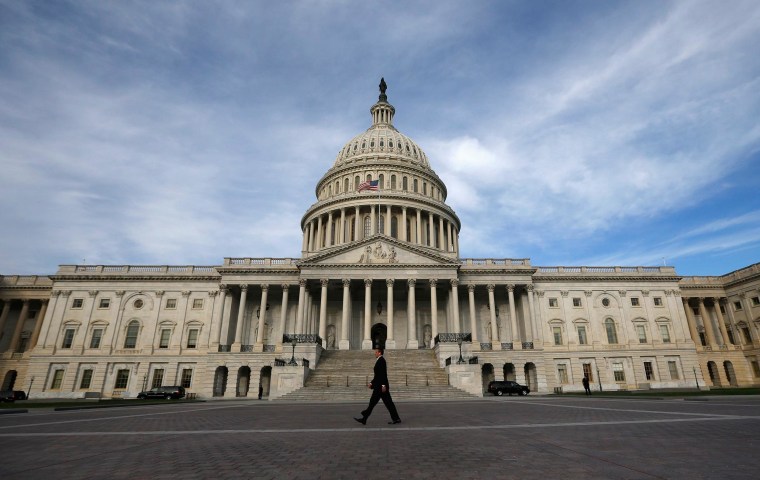The Republican sweep of the House and Senate as well as the presidency gives the GOP singular power to undo President Barack Obama’s signature accomplishments and enact the party's key policies.
Republicans did not win 60 votes in the Senate, so Democrats could use filibusters in that chamber to limit some conservative policies.
But congressional Republicans have already suggested they will use a budget process called reconciliation, by which bills in the Senate only require 51 votes, to either eliminate or dramatically overhaul the Affordable Care Act.
They could also use reconciliation to pass the large income and corporate tax cuts that Donald Trump has proposed, which non-partisan analysts say would disproportionately benefit the wealthy.
In 2013, Democrats changed the Senate rules, allowing nominations for federal judges (except for the U.S. Supreme Court) and for executive branch posts to be approved with 51 votes instead of requiring 60.
Now, that change will allow Trump essentially to pick whomever he wants for circuit and appeal courts and to his cabinet.
Sources close to the real-estate mogul have told NBC News that he is considering ex-House Speaker Newt Gingrich for secretary of state and ex-New York Mayor Rudy Giuliani for attorney general. Democrats are most likely going to strongly oppose such selections, but would not be able to use the filibuster against them.
The most tantalizing prospect for Republicans is that Trump will be nominate a strong conservative to fill the seat on the Supreme Court that has been vacant since Antonin Scalia died earlier this year. A Trump selection would be the fifth GOP-appointed justice on the Court, ensuring a conservative majority there.
The 2013 filibuster change did not apply to Supreme Court justices. But the Republicans, with a majority in the Senate, could change the confirmation rules, requiring only 51 seats to approve of Trump’s pick to the high court. Democrats were considering a similar idea if they won the Senate majority and Hillary Clinton was elected president.
Related: Next President Could Shape Supreme Court for Generations
A conservative Supreme Court would be more likely to uphold regulations on abortion rights and not stand in the way of conservative moves taken by the Trump administration or Republican governors.
Trump has outlined many policy proposals, such as temporarily banning some Muslims from entering the country, that congressional Republicans have not endorsed.
But the businessman and the Republicans in Congress share a number of other goals: limiting or getting rid of environmental regulations that Obama has enacted through executive actions, repealing or changing the Dodd-Frank legislation that regulates Wall Street banks and expanding funding for school vouchers so that parents can send their children to private schools.
In addition, by not having control of either chamber of Congress, Democrats will have little ability to start investigations or hold hearings to critique Trump’s decisions.
On the campaign trail, few congressional Republicans endorsed Trump’s proposal to build a huge wall at the U.S.-Mexico border. He may now find more support for that idea on Capitol Hill, after members watched him win the presidency with his anti-illegal immigration rhetoric.
